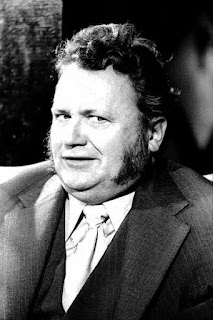I keep reading or hearing the question "what makes a super hero?" and some people can go on for pages giving their definitions. It's very simple really; you jump out to push someone out of the way before a car hits them -you saved a life. That is pretty heroic. Save someone from drowning and it is called "heroic" but wouldn't anyone try to save someone who is drowning?
For instance if you see a person who is being attacked because of his skin colour that is one human helping another. If you are wading into a gang of 4-6 men who are doing the attacking that takes guts and is heroic. "Hero" is so loosely used these days that at times you wonder if people know what the word means? Look online and you will find:
"The dictionary defines "hero" as "a person of distinguished courage or ability, admired for his or her brave deeds and noble qualities." Heroes come in many forms in life, ranging from one's family and friends to athletes to movie stars. A person's heroes can change over time"
Fair enough. And as for a super hero you get into all sorts of things. The usual definition seems to be someone who puts on a colourful costume and has abilities beyond those of normal humans whether that is being bitten by a radioactive spider, being born on another planet and gaining abilities on Earth, wearing a magical belt or ring or being soaked by chemicals in a lab after lightning hits the place.
In the UK we have a very long history of heroes and anti-heroes defined as: not your typical hero because he doesn't always possess purely good qualities or personality traits. For example, while a hero is courageous in the face of battle, an antihero might be afraid. While a hero is perfectly handsome, an antihero might be too short, too hairy, or too fat.
 The Skeleton Horseman and his crew, the Pirate Prince and many others that appeared in old Penny Bloods (and Black Tower Comics by-the-way) -Varney the Vampire, The Monk and Spring-Heeled Jack (whichever) are amongst those anti-heroes.
The Skeleton Horseman and his crew, the Pirate Prince and many others that appeared in old Penny Bloods (and Black Tower Comics by-the-way) -Varney the Vampire, The Monk and Spring-Heeled Jack (whichever) are amongst those anti-heroes.
Most heroes in UK comics did not wear costumes and they include Tim Kelly (Kelly's Eye)...no, the list would be too long to post here. But characters had special abilities and wore every day clothes from school uniforms or casual adult gear.
Originally I think that Fleetway/IPC/AP whatever you want to call them were the innovators of the "hero with fear" in British comics. Thomson were still stiff upper lip and "heroes with no fear" right up into the 1970s. The Steel Claw and The Spider both started at Fleetway as crooks but developed into anti-heroes of sorts. The point is that every person has their view of a super hero and Hugo Hercules never wore a costume but lifted motor cars and houses. Hugo Hercules starred in a weekly comic strip published in the Chicago Tribune and was written and drawn by one Wilhelm Heinrich Detlev Korner and ran for five months, from 7th September,1902 to 11th January, 1903. Some have wondered whether Siegel and Shuster got their Superman idea from this.
The one appeal about, say, comics from Gerald Swan was that there were few heroes with "Hollywood Smiles" they were all normal looking but whether adventures in foreign lands (The Iron Warrior), taking down dope pushers (the Phantom Raider), rescuing someone from a gorilla in a cage (The Black Bat) or dealing with demons and ghosts or sorcerers (Dene Vernon and Krakos ) the characters were human even if the stories are pretty basic due to the situation they were created and drawn in (a World War).







No comments:
Post a Comment